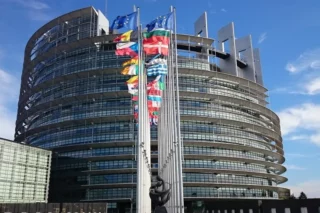There are many discussions concerning religious processions that the Serbian Orthodox Church in Montenegro (SPC) organizes, as some say they are political, while some people strongly deny it. Speaking about street processions, a political observer, Srđan Vukadinović, is adamant – this is not Montenegro we had back in 89s and 90s.
“Today, Montenegro is a NATO member state. If Montenegro was not where it is now, we would probably have paramilitary organizations in Pljevlja, Bijelo Polje, the outskirts of Montenegro, Vasojevići, which would limit and dissect it … However, all this is being observed and monitored. It’s not possible to have anything that would allow negative impacts to happen. I believe that the Montenegrin authorities do possess a significant experience and that they won’t allow provocations of people taking part in the street processions. “
He is sure about one thing – street processions are least religious. They’re rather social and political gatherings.
“We could see that people from distant places in Montenegro, facing social problems, usually take part in these processions. They are probably paid for sending out four or five members of their families to attend processions across Montenegro and for walking 10 or 15 km in order to join processions in some towns,“ Mr Vukadinović told.
According to him, street processions are political, as the fact is that they’re being organized by only one political group – the opposition.
Destruction of the constitutional order
Leader of the Liber Party (LP), Andrija Popović, made a point of being clear about this whole thing: “The newly organized street processions, which have nothing to do with Christian customs, have been political rallies from the beginning, whose goal is to weaken and destroy the constitutional order. Those are rallies against the state order.”
SPC does not recognize the statehood of Montenegro
The Zagreb-based political observer, Davor Đenero, says – the religious freedom law is not in defiance of the Montenegrin Constitution. It neither restricts nor undermines the fundamental human rights.
“The key thing is that the SPC doesn’t want to approve it as it stipulates that all religious communities have to be registered before the state of Montenegro. Having in mind that the SPC does not recognize the statehood of Montenegro, they don’t want to meet this criterion, “ Mr Đenero reckons.




